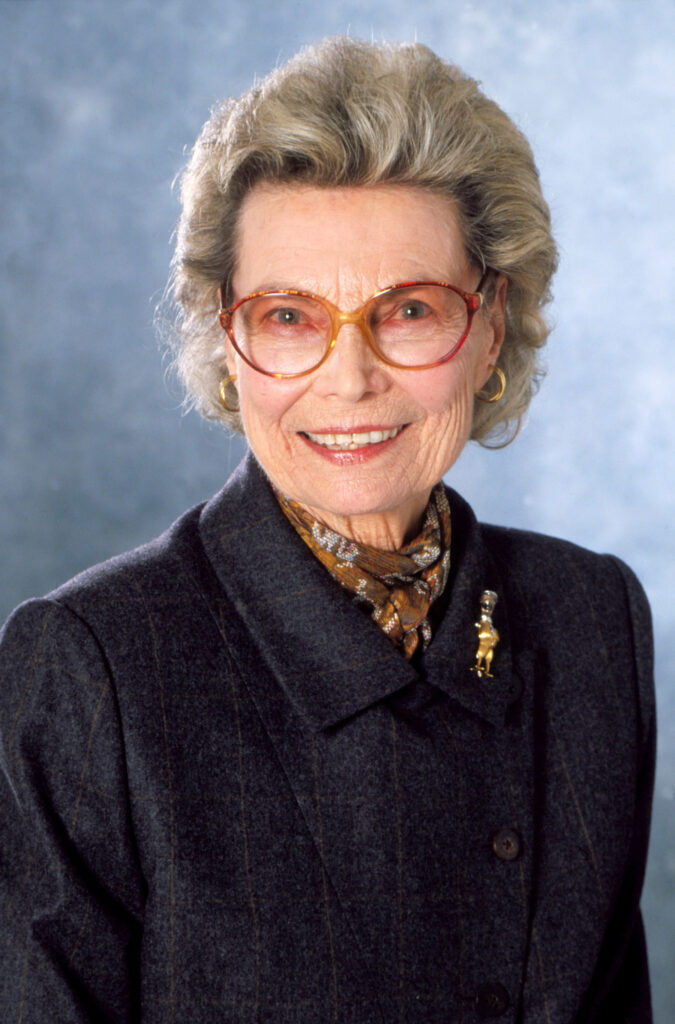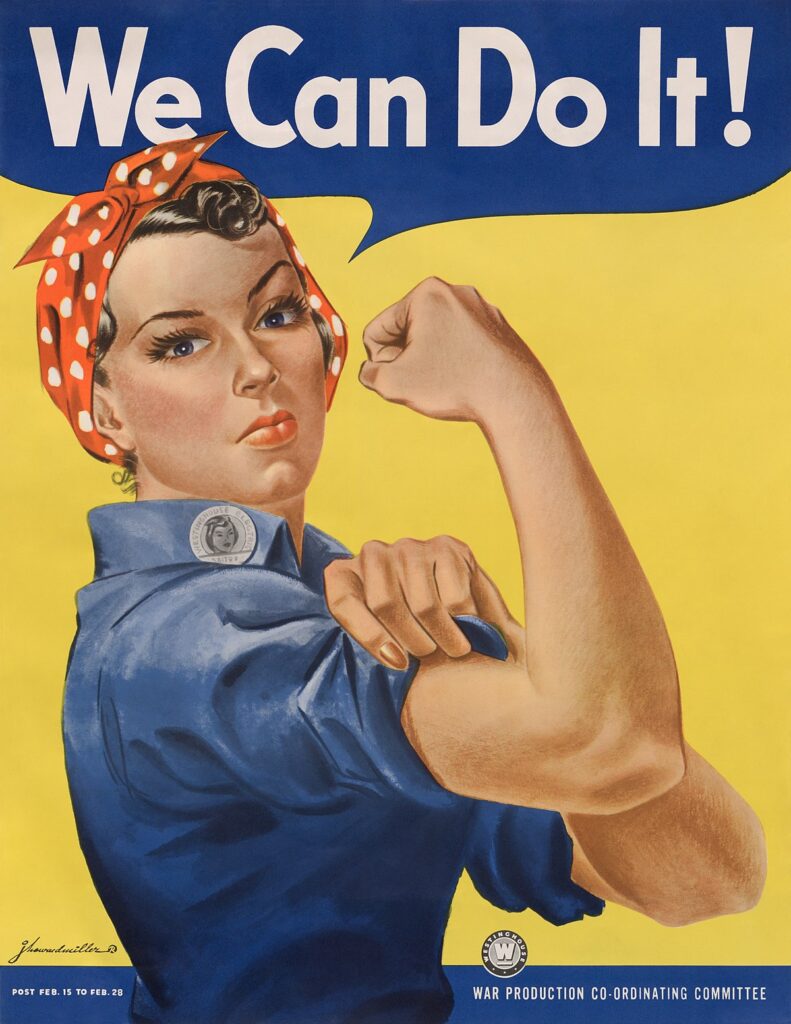Rosalind P. (Palmer) Walter passed away at the age of 95. She is known to millions as the original inspiration for the “Rosie the Riveter” character.
She is appreciated by many for her years of service and support for public broadcasting.
Rosalind P. Walter’s Early Life
Walter grew up in a wealthy family in Long Island. Her father was Carleton Palmer, who was president and chairman of E.R. Squibb and Sons (which is now part of Bristol Myers Squibb). Squibb and sons sold penicillin, which was in high demand due to the war.

Walter’s mother was W. Bushnell, who taught literature at Long Island University. When the US entered World War II, Walter did not go off to college as she could have but rather supported the war effort by working in an airplane factory.
“Rosie The Riveter” Is An Allegorical Cultural Icon In the United States
With most of the country’s men off serving in the military, women rose up to take the jobs those men vacated. Walter worked the night shift attaching rivets to Corsair fighter planes in a plant in Connecticut.
Syndicated columnist Igot Cassini published an article about her in his “Cholly Knickerbocker” column. Redd Evans and John Jacob Loeb wrote a song in 1942, which was based on that article. The Four Vagabonds recorded “Rosie the Riveter” in 1943, and it became a popular song, charting as high as #20.

It is possible that Norman Rockwell heard this song before painting his famous picture of “Rosie the Riveter.” His painting was used to encourage women to step up and perform the jobs left behind by the men.
J. Howard Miller also painted a famous picture of “Rosie the Riveter,” which was used by the Westinghouse Company’s War Production Coordinating Committee to motivate employees to continue working hard for the war effort.
But being the inspiration for countless women during and after the war was just the beginning for Walter, nicknamed “Roz” by her friends.

Walter was one of the principal benefactors for PBS. She was the largest individual supporter of WNET in New York. With her support, the station financed 67 shows or series beginning in 1978.
Walter had an affinity for public television because she had turned down the opportunity to go to college during the war. She found that the programming on public television helped to fill in the education she had missed out on.
According to Allison Fox, who is WNET’s senior director for major gifts, Walter felt that public media was the best way to keep the public informed – a cause that Walter was passionate about.
Walter was married twice. Her second husband was Henry Walter, Jr., president and chairman of International Flavors and Fragrances, which provides scents and flavorings for 38,000 products. It was once the largest company in its field.
The Walters were generous supporters of the American Museum of Natural History, Long Island University, the Pierpont Morgan Library, the college scholarship program of the U.S. Tennia Association, and the North Shore Wildlife Sanctuary.
Read About Other Military Myths and Legends
If you enjoyed learning about the the passing of “Rosie the Riveter”, we invite you to read about other military myths and legends on our blog. You will also find military book reviews, veterans’ service reflections, famous military units and more on the TogetherWeServed.com blog. If you are a veteran, find your military buddies, view historic boot camp photos, build a printable military service plaque, and more on TogetherWeServed.com today.

Fascinating! I was especially intrigued by the connection to penicillin.I was born in May 1946 and, according to my parents, would have died less than a month after being born. But the US Government had just released penicillin from purely battlefield use and made it available to the civilian community. So, Rosie the Riveter’s family literally saved my life twice: once on the many and varied battlefields of World War II, and again in the hospital as a newborn. Amazing!!
I spent my adult career serving in the Army, beginning in Vietnam and later serving all over the world. Perhaps in some small way I “paid back” Rosie for HER service!
We need more patriots like Rosie in our troubled times. She should be a landmark for patriotism. R68-69